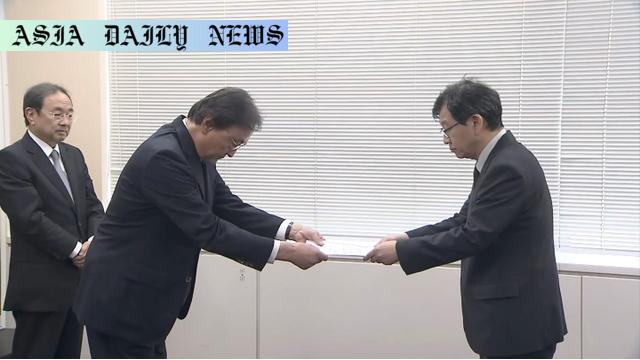Scandal prompts Fuji TV to implement structural changes, strengthen compliance measures, and prioritize human rights policies.

Introduction to the Fuji TV Scandal
Fuji Television Network, one of Japan’s leading broadcasters, and its parent company Fuji Media Holdings recently faced immense public scrutiny following a high-profile scandal. Reports surfaced of a sexual assault case involving a former female announcer and TV personality Nakai Masahiro. This incident not only tarnished the company’s reputation but also raised questions about corporate governance, prompting significant action. The Japanese Ministry of Communications intervened, issuing strong reprimands and requiring the companies to implement substantive measures aimed at rebuilding trust.
Deep Dive Into the Scandal: Root Causes and Repercussions
The sexual assault incident, brought to light by an independent third-party panel, presented damning criticism of the management’s failure and exposed a questionable corporate culture. The findings revealed a lack of accountability and structural inefficiencies that increased the vulnerability of employees to misconduct. Additionally, the culture within the entertainment departments further compounded these issues, as the pursuit of ratings and revenues often overshadowed employee well-being. The company’s leadership, seen as being reactive rather than proactive, faced heavy public backlash, pushing their financial and corporate standing into perilous territory.
Fuji TV’s Response: Key Reforms and Measures
In an effort to reset its organizational ethos, Fuji TV has rolled out a sweeping set of reforms. A sustainability management committee, led by the company president and supported by external experts, has been set up to embed human rights policies into fundamental business strategies. Moreover, drastic structural changes have been implemented. The programming and variety show production departments have been dissolved and reorganized, while the announcer division has been made independent and granted enhanced authority over assignments.
Leadership restructuring and accountability mechanisms are also being revamped. This includes introducing retirement systems for executive officers, capping their tenure, and abolishing advisory systems that may hinder innovation or corrective action. These changes underscore a commitment towards fostering a more transparent, compliant, and inclusive workspace.
Financial Impact and the Road Ahead
Beyond reputational damage, the scandal severely impacted Fuji Media Holdings’ financial performance. With commercial sponsors retreating in significant numbers—dropping from over 400 sponsors in April of the previous year to just 90—the company reported a forecasted 20.1 million yen net loss for fiscal 2024. This marks the first financial deficit since becoming a certified broadcasting holding company in 2008. The overall drop in earnings has been attributed to extraordinary losses on fixed assets paired with declining revenues from deteriorated sponsor trust.
The management now faces a dual challenge: repairing its reputation while stabilizing financially—two highly interlinked goals. The company’s commitment to transparency, enhanced compliance, and structural overhauls is an indication of a new strategic direction to counteract existing challenges.
Building Trust: A Focused Path Forward
While the reforms are significant, Fuji TV must stay committed to regularly assessing their effectiveness and adapting strategies based on stakeholder feedback. Rebuilding trust among employees, viewers, and corporate sponsors will require time and consistency. Additionally, introducing frequent audits or evaluations by external bodies can help ensure sustained progress and accountability. As a leading broadcaster, Fuji TV must lead by example to show that lessons have indeed been learned, and similar crises will not see a recurrence.
Commentary
Fuji TV’s Crisis: A Wake-Up Call for Accountability
The scandal involving Fuji Television Network highlights a broader issue prevalent in many corporate entities—the lack of proactive measures to prevent misconduct. Too often, it takes public exposure or external critique for companies to initiate action. This reactive approach not only deepens the crisis but also breeds mistrust in both internal and external stakeholders. The criticism faced by Fuji TV’s management reflects a widespread sentiment of dissatisfaction about their delayed responses in addressing this serious issue.
The Importance of Cultural Overhauls
The root cause of this scandal wasn’t just the isolated incident; it stemmed from a corporate culture centered on profit-maximization at the expense of employee welfare. Dissolving the programming department and segregating the announcer division is a step in the right direction, ensuring oversight while distributing responsibilities more effectively. However, these structural changes alone will not suffice. The onus is on the leadership to communicate a clear, values-driven narrative that prioritizes ethical practices alongside business objectives.
Financial Consequences and Long-Term Goals
The sharp decrease in sponsor participation is a grim reminder of how a tarnished reputation can lead to tangible financial consequences. For Fuji TV, the imperative is now twofold: addressing internal issues while rebuilding sponsor and viewer trust. Instilling confidence amongst stakeholders is a slow process and must be approached with complete transparency, consistent reporting on improvements, and acknowledgment of past failures.
In conclusion, Fuji TV’s story is a powerful case study for organizations worldwide. Pre-emptive planning, prioritizing human values, and maintaining open lines of communication are essential elements that companies must integrate into their operations to prevent such scenarios. Now, the success of Fuji TV’s reforms will depend on their ability to remain steadfast on this corrective path.


